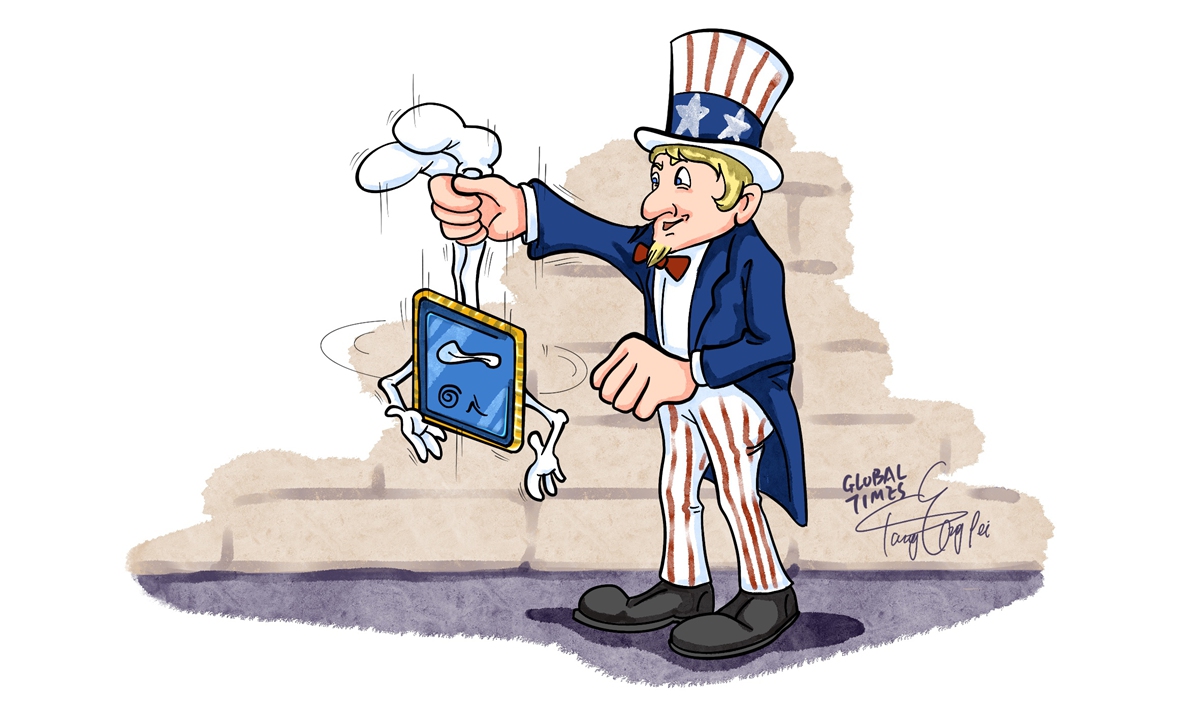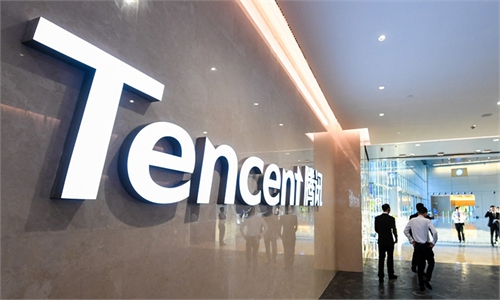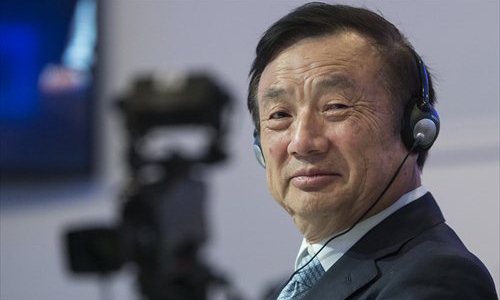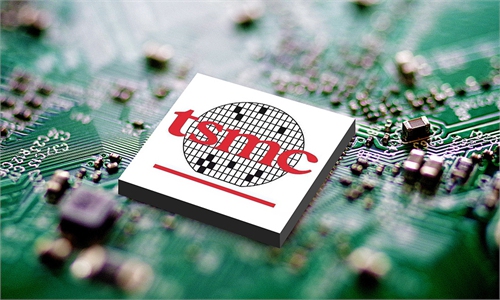COMMENTS / EXPERT ASSESSMENT
To end US hegemony, an independent tech system is imperative

Illustration: Tang Tengfei/Global Times
Some of the world's largest chipmakers including Taiwan Semiconductor Manufacturing Company (TSMC) have responded to blatant US government extortion in forcing private companies to submit secret business data before a Monday deadline.Although TSMC emphasized that it did not release any detailed customer data to the US government, it is obvious that the US' arbitrary move has not only severely damaged the commercial reputation of TSMC and other tech companies, but also harmed the commercial confidence of the entire global semiconductor industry chain.
The relentless political intervention by the US government across the global high-tech industry is a clear warning to China and all high-tech companies in the world -- in order to end the political hegemony of the US, a global technology system independent of the influence of Washington should be set up. There is no other way out.
In 1945, the US' presidential science advisor, Vannevar Bush submitted a report titled "Science, Endless Frontier" to then President Franklin Roosevelt. The landmark document established the US post-war science and technology policy framework, and helped establish the world's leading innovation economy in the US today. In addition to emphasizing the importance of basic research for the first time, more importantly, it takes scientific research autonomy and freedom of exploration as basic principles, which greatly stimulated the creativity of the scientific community.
For a long time, the US government has always regarded reducing intervention in high-tech industries as a foundation for the success of the innovation-led economy. However, today, the US government's escalating political intervention in the high-tech sector has increasingly turned this principle on its head.
In recent years, Washington's intervention in global high-tech development has become increasingly overreaching. The US Department of Commerce (DOC) extended its reach into a number of high-tech companies in the world, seriously infringing on the legitimate rights and interests of these companies.
Suppliers to Chinese telecom giant Huawei Technologies and China's top chipmaker Semiconductor Manufacturing International Corp (SMIC) obtained billions of dollars' worth of licenses from last November through April to sell them products despite their being listed on a US trade blacklist, the Reuters reported last month. Documents released by Congress reveal that 113 export licenses worth $61 billion were approved for suppliers to ship products to Huawei while another 188 licenses valued at nearly $42 billion were also greenlighted for SMIC during the period. The US government's ambitions go far beyond the embargo and supply review against Huawei. In February, US President Joe Biden signed an executive order to review supply chains for critical goods.
Moreover, Washington's tech interference has gradually shifted to containing China. In September, the US DOC required TSMC, Samsung, Intel, GlobalFoundries, Micron and other semiconductor companies to submit confidential business data such as inventory, orders, shipments, production capacity, yield, and answer a large number of sensitive questions. US Secretary of Commerce Gina Raimondo threatened representatives of companies that if they do not respond to the request, the US government will use the National Defense Production Act or other tools to force companies to submit those records.
Although the US government claimed that its purpose is to improve Washington's crisis response capability and address root causes of the global chip shortage, few actually believed this was the actual case. Washington obviously hopes to further strengthen its dominance and control of global semiconductors.
In addition to the impact of COVID-19, it is the US government's reckless intervention to blame for the global high-tech supply chain chaos. The US' hardline move not only cut China's dependence on US technologies and components, but also began to remind other countries that if they do not get rid of the US monopoly and do not go beyond the technical route centered on the US technology system, it will be difficult to achieve true industrial independence.
The US government's unscrupulous approach is mainly supported by two premises: its unique global hegemony status and the exclusive monopoly position of the US in the high-tech field. The US hegemony is deeply entrenched and difficult to shake in the short term.
The US' escalating abuse of hegemony demonstrates that it is increasingly essential for the world to build a "non-US technology system."
To avoid US political interference, the global high-tech industries must make a radical change: get rid of the US technology monopoly and ignite genuine competition. Reality has proven that under the continuous attacks and intervention of the US government, many Chinese tech companies have already achieved enormous progresses that were considered impossible in the past.
The author is director of the Center for Internet and Society at Zhejiang University of Media and Communications, and founder of Beijing-based technology think tank ChinaLabs. bizopinion@globaltimes.com.cn



